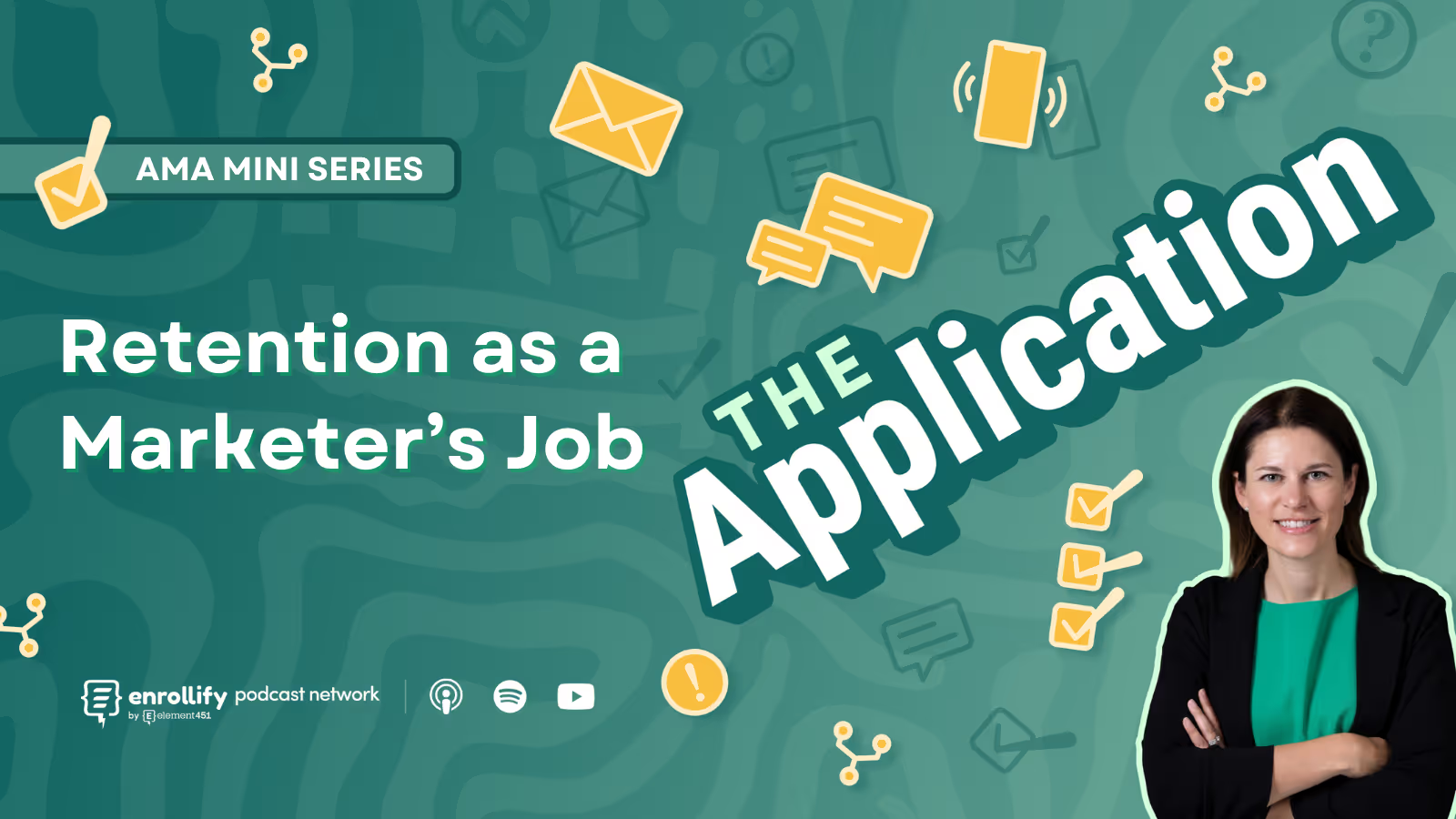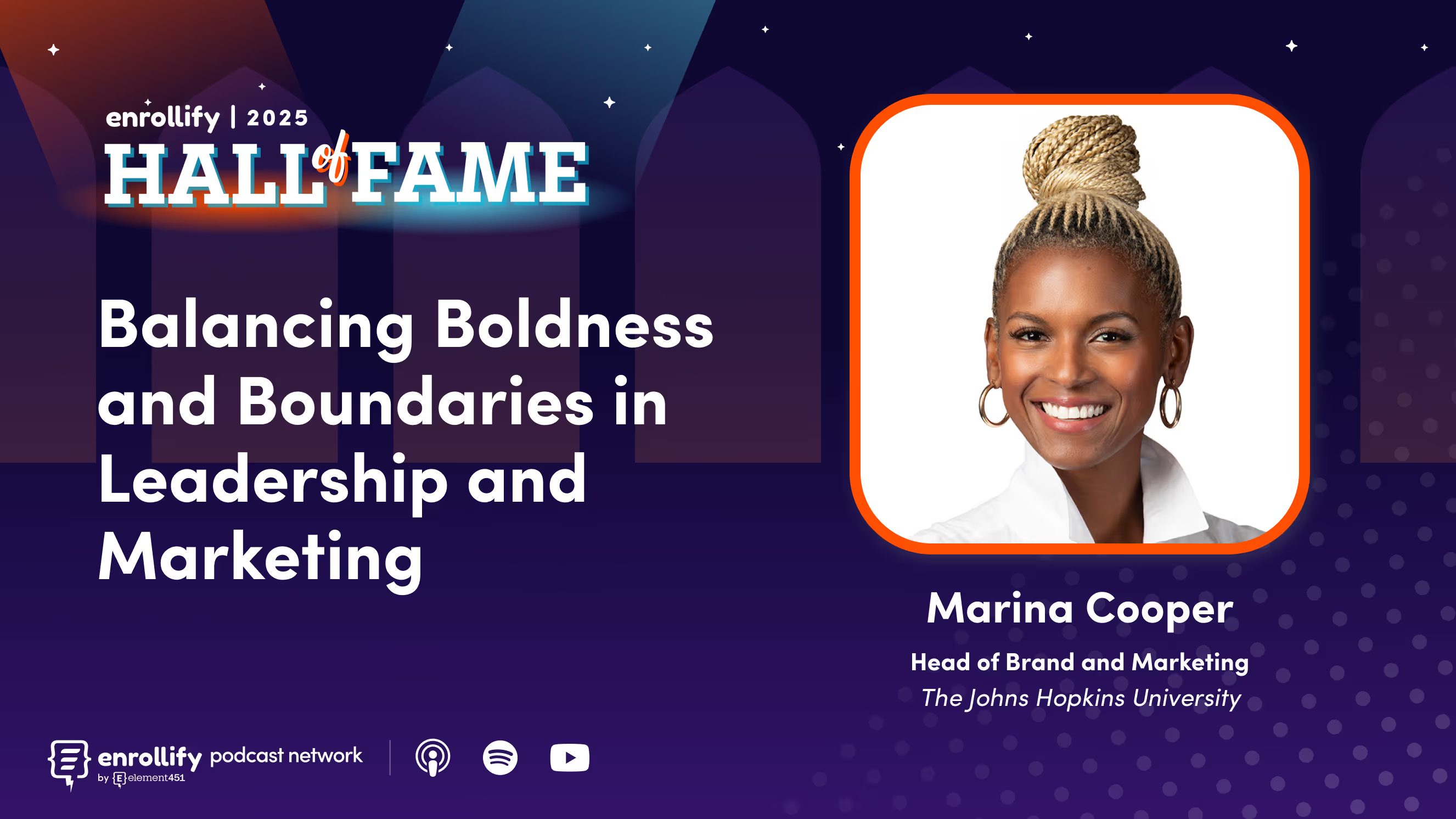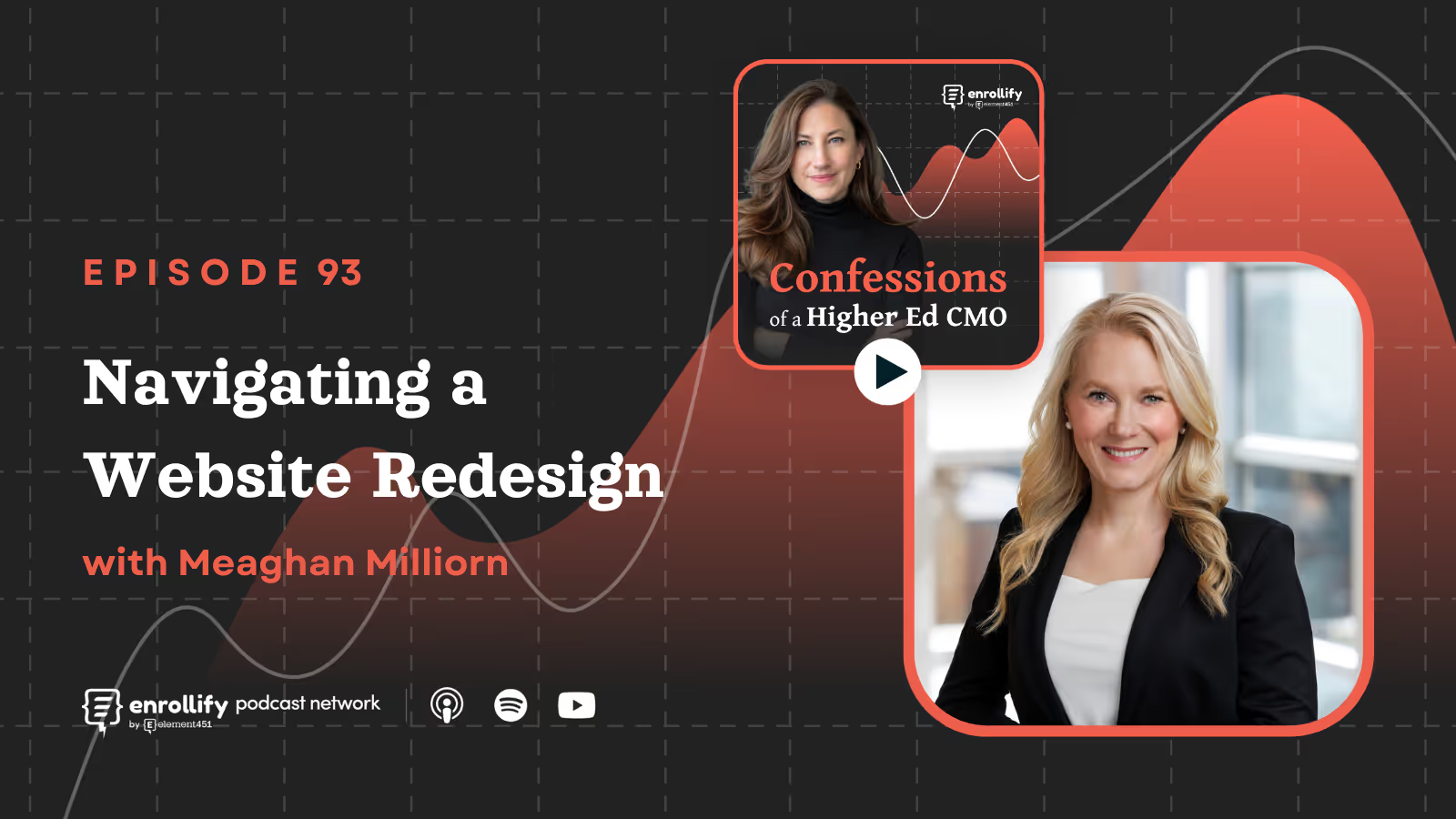About the Episode
Got a story to tell? An innovative idea to share? Fill out our guest nomination form and let's chat!
About The Episode:
Join us as Mike Miles, Director of Web Development at MIT Sloan, shares insights on integrating AI into development workflows, fostering team collaboration, and preparing for the future of AI-assisted coding. Learn practical approaches to using tools like GitHub Copilot and strategies for optimizing web content for AI consumption.
Episode prompt:
You are an SEO expert specializing in higher education websites. Help me create optimized page titles and meta descriptions for our university webpages. Please analyze the content and context of the following page and provide recommendations that balance search visibility with our educational mission.
Consider these institutional factors:
- Primary target audience(s) for this page (e.g., prospective students, current students, faculty)
- Competitive academic programs or unique offerings
- Core institutional values and brand voice
- Search intent for different audience segments
Please generate:
1. Page Title (50-60 characters)
- Primary version optimized for search
- Alternative version emphasizing brand/value
- Mobile-friendly shortened version
2. Meta Description (130-155 characters)
- Primary version with clear call-to-action
- Alternative version focusing on unique value proposition
- Mobile-friendly shortened version
3. Provide brief explanations for:
- Key terms/phrases targeted
- Why these choices align with user intent
- How these support our SEO goals
Guidelines:
- Include location/institution name where relevant
- Avoid keyword stuffing
- Maintain academic tone while being engaging
- Consider local/regional search impact
- Follow higher ed best practices for accessibility
After analyzing the page content, please ask clarifying questions about:
- Specific program differentiators
- Target geography
- Primary conversion goals
- Competing pages/institutions
Key Takeaways
- AI is boosting productivity: Tools like GitHub Copilot significantly reduce time spent on debugging and code ideation.
- Mitigating imposter syndrome: AI offers a judgment-free zone for developers to ask questions and build confidence.
- Collaboration and innovation: Peer programming sessions help teams learn and share AI use cases effectively.
- AI-focused future: Structuring web content for AI consumption will be critical for future-proofing higher education websites.
- Start small, think big: Even basic experimentation with AI tools can position developers and institutions ahead of the curve.
Episode Summary
How AI is Enhancing Development Workflows
At MIT Sloan, Mike Miles’ small web development team is leveraging GitHub Copilot to enhance productivity and overcome challenges. AI tools assist in generating code, solving bugs, and creating tailored solutions that save hours of manual work. For instance, Mike shared how an AI-powered rewrite of testing scripts in Drupal 10 saved his team significant time and resources, showcasing the transformative potential of these technologies.
By integrating AI into daily workflows, developers can focus on critical thinking and high-value tasks while AI handles the repetitive, time-consuming work. This shift not only accelerates project timelines but also empowers developers to explore innovative solutions.
The Power of Peer Programming and AI
Weekly peer programming sessions are a cornerstone of Mike’s team culture. These collaborative Zoom meetings foster a space where team members share screens, tackle challenges together, and explore AI-driven solutions. During these sessions, tools like GitHub Copilot become teaching aids, offering immediate insights and jumpstarting coding processes.
These gatherings not only enhance team knowledge but also reinforce the use of AI as a trusted collaborator. By normalizing AI integration, teams can build collective expertise and stay agile in a rapidly evolving tech landscape.
Preparing for an AI-Centric Future
Mike predicts that web development and higher ed marketing will soon focus on structuring content for AI consumption. As tools like ChatGPT and Google’s AI-powered search evolve, institutions must ensure their websites are optimized for both human users and AI engines. This shift will redefine SEO strategies, emphasizing data structuring to enhance visibility in AI-driven search results.
Institutions aiming to remain competitive must also address AI integration guidelines and provide developers with the tools and training needed to thrive. Starting small—such as experimenting with no-code platforms or AI tools for specific tasks—can lead to significant organizational growth
Connect With Our Host:
Brian Piper
https://www.linkedin.com/in/brianwpiper/
About The Enrollify Podcast Network:
AI for U is a part of the Enrollify Podcast Network. If you like this podcast, chances are you’ll like other Enrollify shows too!
Some of our favorites include Generation AI and Mastering the Next.
Enrollify is produced by Element451 — the next-generation AI student engagement platform helping institutions create meaningful and personalized interactions with students. Learn more at element451.com.
Attend the 2025 Engage Summit!
The Engage Summit is the premier conference for forward-thinking leaders and practitioners dedicated to exploring the transformative power of AI in education.
Explore the strategies and tools to step into the next generation of student engagement, supercharged by AI. You'll leave ready to deliver the most personalized digital engagement experience every step of the way.
👉🏻 Register now to secure your spot in Charlotte, NC, on June 24-25, 2025! Early bird registration ends February 1st.







.avif)







